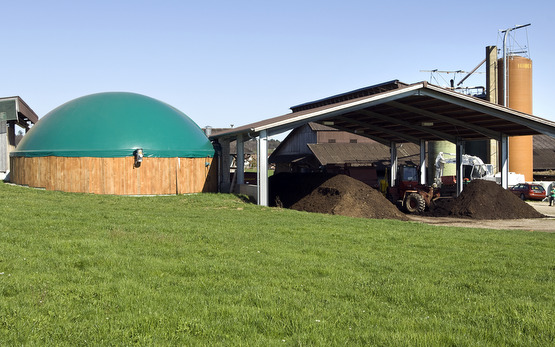Agricultural policy has set climate protection targets in the food sector. Some of these are the responsibility of the agricultural sector, whilst others fall to the processing sector and consumers. Agricultural policy instruments may focus on a fundamental change in production volumes, or on technical measures that do not affect production. The food processing and food retail sectors have also set themselves targets for reducing the greenhouse gas footprint of their products along the value chain.
By using the life cycle assessment method we can thoroughly evaluate such instruments and strategies, including the entire chain from the manufacture of the means of production to the imported products. In addition, we consider the impact of climate protection measures on other environmental areas and identify synergies and trade-offs.
As part of an FOAG resource project, Agroscope has supported IP-SUISSE in developing a climate protection point system for its members. IP-SUISSE hopes to reduce its greenhouse gas emissions by 10% with the help of climate protection measures that do not affect farm productivity. Agroscope has provided the scientific basis for achieving this. For each measure we have calculated both the potential for reducing greenhouse gas emissions as well as further environmental impacts in order to highlight possible trade-offs. In addition, we have calculated a detailed climate footprint for over 30 pilot farms, using the results to identify a method for estimating the greenhouse gas emissions of all IP-SUISSE farms. This has also allowed us to determine the extent of the IP-SUISSE reduction target. We shall continue to support IP-SUISSE with the impact monitoring and review the effectiveness of the point system until 2024.






